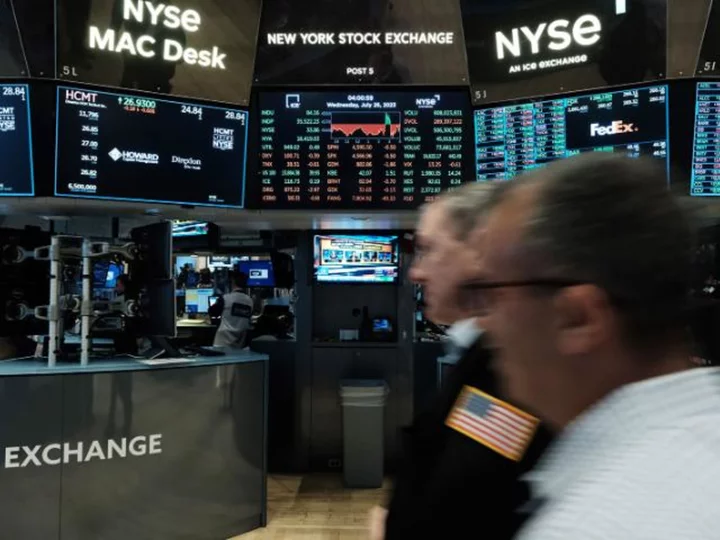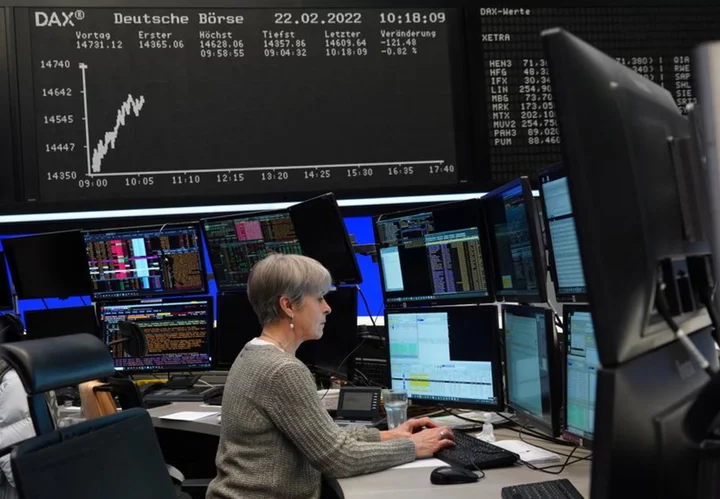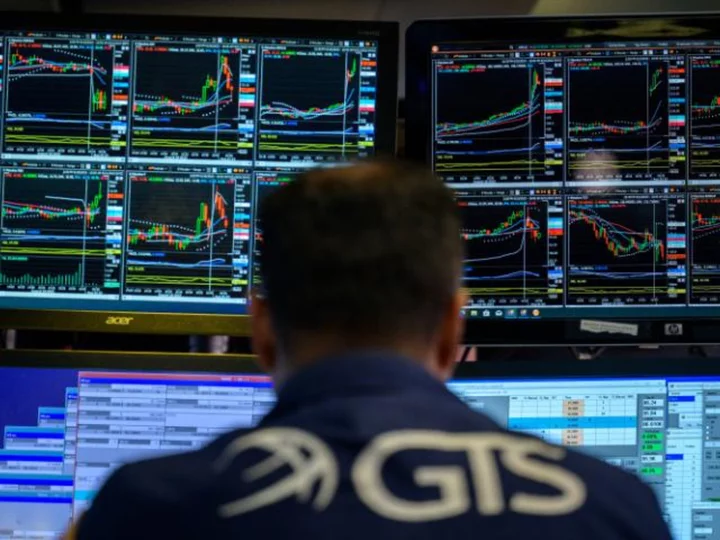US markets just wrapped up a winning July, with the S&P 500 and Nasdaq both notching their fifth positive month in a row.
But August is here, and that often means trouble for markets. The last time the S&P 500 was on a winning streak this long was in 2021, when it was positive for seven months in a row — until August hit and ended the victory run.
Welcome to the summer doldrums.
The well-known Wall Street adage says "sell in May and go away" because the summer, and August in particular, marks a historically volatile period for the stock market. That's largely because so many investors take vacations and there are decreased trading volumes. This reduced activity can lead to increased volatility.
On average, August has been the worst performing month for stocks since 1986, according to Morningstar.
And this August may be choppier than usual because it's particularly busy for late summer. It's chock full of economic data, a key conference and big corporate reports. That means the dwindling number of traders who remain must take extra care in a such a potentially volatile environment.
Here's what to watch for:
Earnings reports: Apple and Amazon both report this week, and all eyes will be on these tech titans for clues about the mood among US consumers.
"This week's Apple earnings report is critical for markets, as Apple is not only the market's most valuable company, it's also a litmus test for consumer spending, which so far has been keeping the economy afloat. But we have been seeing some signs of a consumer slowdown," said Michael Landsberg, chief investment officer at Landsberg Bennett Private Wealth Management on Monday.
With a valuation of $3 trillion, Apple is the most valuable publicly traded company, and its report could easily swing the direction of the markets.
Unemployment numbers: The US jobs report for July is expected on Friday. This is the first major piece of data following the Federal Reserve's recent decision to increase interest rates by a quarter of a percentage point. With unemployment sitting near record lows and the Fed indicating the demand for workers needs to ease, this report will surely make an impact. Analysts expect the unemployment rate to remain the same, at 3.6%, according to Refinitiv estimates.
Inflation data: The consumer price index, a key measure of US inflation, is due out next Thursday. The price gauge is expected to cool but still remain well above the Fed's target 2% rate. Analysts, however, worry that there could be a sting in the tail given oil prices have been rebounding off recent lows.
This time around, "August's volatility could be extra elevated if we see hotter-than-expected inflation readings," said Landsberg, "given the rise in gasoline and commodity prices over the past few weeks."
Jackson Hole: The end of August marks the Federal Reserve Bank of Kansas City's symposium in Jackson Hole, Wyoming. There, Fed officials, central bankers from around the world and top economists will mingle and discuss policy. At the end of the meeting, Fed Chair Jerome Powell typically delivers a keynote address laying out his policy perspective for the rest of the year. Markets don't always like what they hear.
Last year, his speech sent the Dow down more than 1,000 points — its worst day since May.
AMC just had its best week in history, thanks to Barbie and Oppenheimer
AMC Theaters hit a revenue record last week, driven by the overwhelming success of the "Barbenheimer" craze.
The world's largest theater chain announced on Sunday that from July 21-27, it earned its largest single-week admissions revenue since the company's founding in 1920. AMC attributed this 103-year high to the incredible opening weekend of both "Barbie" and "Oppenheimer," as well as the strong momentum that continued to carry them along, reports my colleague Eva Rothenberg.
"Barbenheimer" had tremendous staying power in its second weekend in theaters, with "Barbie" grossing $93 million and "Oppenheimer" almost $47 million, according to official studio numbers.
Last weekend was AMC's busiest since the pandemic forced theaters to close in 2020, the company said, and this weekend marked the chain's third-busiest worldwide since reopening. It reported that 65 AMC locations across 19 states and Washington, DC, set their own box office records this week as well.
AMC shares were up more than 7% in Monday trading.
(CNN and Warner Bros., which distributed "Barbie," are both owned by Warner Bros. Discovery).
99-year-old trucking company Yellow shuts down
Yellow Corp., a 99-year-old trucking company that was once a dominant player in its field, halted operations Sunday and will lay off all 30,000 of its workers, reports my colleague Chris Isidore.
The unionized company has been in a battle with the Teamsters union, which represents about 22,000 drivers and dock workers at the company. Just a week ago the union canceled a threatened strike that had been prompted by the company failing to contribute to its pension and health insurance plans. The union granted the company an extra month to make the required payments.
But by midweek last week, the company had stopped picking up freight from its customers and was making deliveries only of freight already in its system, according to both the union and Satish Jindel, a trucking industry consultant.
While the company is based in Nashville, Tennessee, it is a national company with terminals and employees spread between more than 300 terminals nationwide. Experts in the field said it was primarily an unaffordable amount of debt, more than the cost of the union contract, that brought down Yellow.
"The Teamsters had made a series of painful concessions that brought them close to wage parity with nonunion carriers," said Tom Nightingale, CEO of AFS Logistics, a third-party logistics firm that places about $11 billion worth of freight annually on behalf of shippers. He said the company began taking on significant amount of debt 20 years ago in order to acquire other trucking companies.
"Now their debt service is just enormous," he said, pointing to $1.5 billion in debt on its books.
Read more here.









